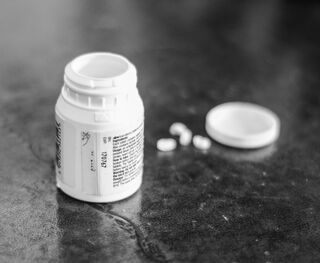Happiness
Why Pills Won't Make You Happy
Drugs, whether psychiatric or recreational, cannot reproduce happiness.
Posted June 13, 2021 Reviewed by Jessica Schrader
Key points
- Street drugs may provide pleasure, but they are crude and unreliable.
- Antidepressants treat depression, but cannot bring happiness.
- Happiness is an abstract idea that cannot be transplanted into the chemical machinery of our brain.
Alexander Fleming, the discoverer of penicillin, said that “penicillin cures, but wine makes people happy.” Bringing ephemeral joy is what recreational drugs do. The problem with these drugs (including alcohol, of course), apart from the risks they may pose, is that the chemical shortcut to pleasure that they offer is crude and unreliable. If they could be trusted to transport us to a good place every time we took them, we would have a panacea to pleasure at our disposal and this would transform our world radically.
Brave New World
Aldous Huxley described such a place in his Brave New World, as he called his novel, first published in 1932. The inhabitants of this curious story lived perfectly happy lives with the help of soma, the state-provided drug that kept them docile but content. Everybody is happy (in a way) in Huxley’s world. Not bad for a dystopia. Mind you, this is a very flat type of happiness, with no passions or excitement, no risks and no exquisite pleasures. Some (including some famous philosophers, like Nietzsche, for instance) would argue that a life without any shadows or any pain providing a contrast for the joy and the light would not be worthwhile living. In any case, we needn't worry about this philosophical issue because there are no reliable recreational shortcuts to happiness available in real life.

Are psychiatric drugs any better at bringing happiness?
In a word, no. Psychiatric drugs are not meant to make anybody feel happy, and this includes antidepressants. They wouldn’t know how, or where, to exert a hypothetical happiness action. There isn’t a happiness centre to be found in the brain, either in the very old limbic system (the emotional brain) or in the evolutionarily newer cerebral cortex that sits on top of it. There isn’t such a thing as a happiness neurotransmitter either. Not even serotonin. And however hard we look for such nuclei and neurotransmitters, they will never be found, I believe, simply because happiness is an abstract philosophical idea that cannot be transplanted into the neural machinery of the central nervous system.
Psychiatric drugs are meant to treat the suffering associated with mental illness and this will in turn should, with any luck, bring about a measure of wellbeing and happiness. That's all.
So, recreational drugs may sometimes induce pleasure, while psychiatric drugs bring stability. If we combine both goals, will this make us happy?
Unlike street substances, psychiatric drugs don't provide a "kick" (generally speaking) and they may even have unpleasant side effects. In other words, one wouldn't be tempted to take them unless there was a need to address a mental health issue. But there is no reason why it should necessarily be like this. The artificial separation that traditionally existed between recreational and therapeutic drugs has now been blurred, bringing chemicals like Ketamine and Psilocybin (magic mushrooms) into our treatment armoury.
And yet, even if we direct the mind-altering ability of certain street substances toward curing mental illness, happiness will still remain as elusive as ever. Unfortunately, there is no such thing as happy pills.


